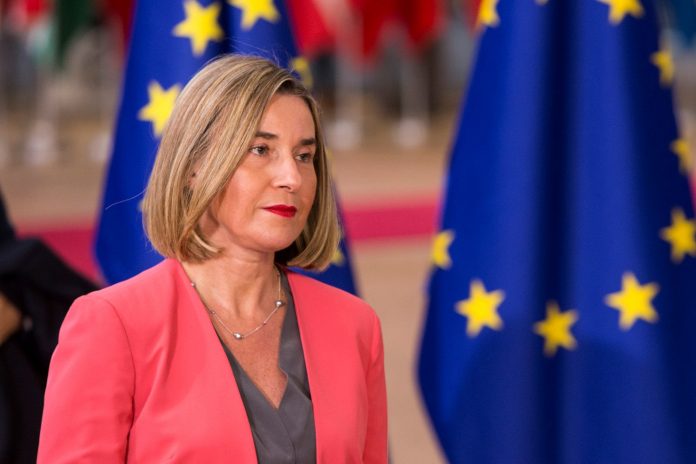European Union reactivated its so-called blocking law to counter the economic threat posed by US sanctions towards European businesses. The move followed United States President Donald Trump’s warning.
“Anyone doing business with Iran will NOT be doing business with the United States,” Trump said on August 7.
As reported by Euronews online, the sanctions came into effect early on August 7, adding pressure to the Islamic Republic’s economy and leadership, despite dismay from Washington’s European allies. It comes three months after Trump pulled the US out of the international accord limiting Iran’s nuclear activities.
The first batch of measures target financial transactions, trade in gold and other metals, the car industry and commercial aviation. Further sanctions on Iran’s lucrative oil industry and energy sector are due to follow in November.
In a TV appearance, Iran’s President Hassan Rouhani accused Washington of “wanting to launch a psychological war against the Iranian nation”. He dismissed a US call for talks, saying “we are always in favour of diplomacy and talks… But talks need honesty”.
On August 6, Trump had issued a statement, saying “the Iranian regime faces a choice: either change its threatening, destabilizing behaviour and reintegrate with the global economy, or continue down a path of economic isolation”.
Back in Brussels, European officials have condemned the renewed sanctions as illegal and in violation of a UN Security Council resolution, vowing to counter the US measures and save the Iran nuclear accord. The sanctions follow the Trump administration’s withdrawal from the 2015 deal known as the Joint Comprehensive Plan of Action (JCPOA).
“We are doing our best to keep Iran in the deal, to keep Iran benefitting from the economic benefits that the agreement brings to the people of Iran, because we believe that this is (in) the security interests not only of our region but also of the world,” said European Union Foreign Policy Chief Federica Mogherini. “If there is one piece of international agreements on nuclear non-proliferation that is delivering, it has to be maintained.”
According to Euronews, analysts warn the EU’s statute will be difficult to enforce. Also, many international companies – facing the alternative of stiff US penalties and the potential loss of access to US markets – are withdrawing investment from Iran.
“Most of the companies have already made up their mind, whether it’s the German Siemens, the French carmaker PSA, the Danish Maersk – all these companies that have said they don’t want to risk losing access to the US market, they don’t want to risk losing access to the financing in dollars by US banks, and also they don’t want to lose their US shareholders. So, for the moment the choice is already made by most of these companies to pull out of Iran, despite the threat of the EU to sue them for doing so,” Euronews’ Brussels correspondent Bryan Carter reported for Good Morning Europe.
In a separate report, Deutsche Welle (DW), Germany’s international broadcaster, noted that the blocking statute has never been implemented before.
The blocking statute prohibits European companies from abiding by American sanctions. However, a company can always say that it is pulling out of Iran for business reasons and not because of US sanctions. A senior EU official made it clear in Brussels that it was not about punishing European companies twice, but is meant as a deterrent.
What is more, the EU is also sending a clear political message to the US that they will not just submit to American unilateralism, which is also why EU foreign policy chief Mogherini and the three European foreign ministers announced their commitment to a financing channel and further oil and gas exports from Iran.
“We want to show that we are still committed to the Iran agreement,” said a senior EU official.
According to DW, the hope now is that the leadership in Teheran which is under increasing economic pressure will continue to abide by the agreement and not resume making nuclear weapons.

